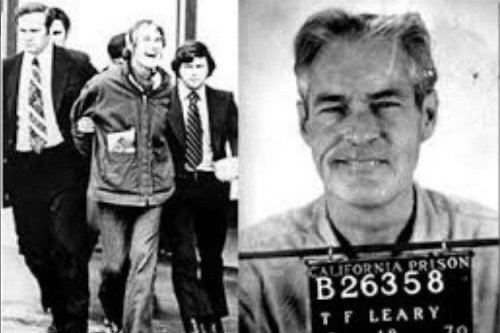Timothy Leary: The Psychedelic Advocate Who Found Redemption in Prison
Timothy Leary was a controversial figure in the 1960s, advocating for the use of psychedelic drugs and promoting the counterculture movement. However, his life took a dramatic turn when he was arrested for marijuana possession and sentenced to ten years in prison. While in prison, Leary participated in psychological research and tests, but the question remains: did he deliberately choose to work as a gardener?
Leary’s Early Life and Advocacy for Psychedelic Drugs
Born in 1920, Leary was a well-educated man who obtained a Ph.D. in clinical psychology from the University of California, Berkeley. In the 1960s, he became an advocate for the use of psychedelic drugs, promoting the benefits of LSD and other mind-altering substances. Leary believed that psychedelic experiences could be used for personal growth and spiritual enlightenment, leading to a deeper understanding of oneself and the world.
Leary’s advocacy for psychedelic drugs made him a controversial figure, with some critics claiming that he was promoting drug use and encouraging young people to engage in dangerous behavior. Nevertheless, Leary continued to speak out about the benefits of psychedelics and became a counterculture icon.

Leary’s Arrest and Imprisonment
In 1970, Leary was arrested for marijuana possession and sentenced to ten years in prison. He was sent to the California Men’s Colony, a low-security prison located in San Luis Obispo. While in prison, Leary participated in psychological research and tests, including the now-famous “Good Friday Experiment.”
The Good Friday Experiment was a study conducted by Harvard University in which a group of divinity students was given psilocybin, a psychedelic substance found in magic mushrooms, in a controlled setting. The study aimed to explore the spiritual and religious experiences that could be induced by psychedelics. Leary, who was in prison at the time, was not involved in the study, but he did participate in other research projects.
The Question of Leary’s Motives
One of the most intriguing aspects of Leary’s time in prison is the question of whether he deliberately chose to work as a gardener. According to some reports, Leary answered psychological tests in a way that would lead to him being assigned to work as a gardener, a job that allowed him more freedom and access to drugs. However, others dispute this claim and argue that Leary simply took the job that was offered to him.
Regardless of Leary’s motives, his time in prison was a turning point in his life. He later described his time in prison as a period of introspection and self-reflection, during which he was able to break free from his ego-driven personality and achieve a deeper understanding of himself and the world.
Leary’s Legacy
Leary was released from prison in 1976 and continued to speak out about the benefits of psychedelic drugs until he died in 1996. While some still criticize his advocacy for drug use, others see him as a visionary who was ahead of his time.
Today, psychedelic drugs are once again being explored for their potential therapeutic benefits. Researchers are investigating the use of psychedelics for the treatment of depression, anxiety, and other mental health conditions. While the scientific evidence is still limited, the renewed interest in psychedelics is a testament to Leary’s enduring legacy.

Conclusion
Timothy Leary was a controversial figure who promoted the use of psychedelic drugs and became a counterculture icon in the 1960s. However, his life took a dramatic turn when he was arrested for marijuana possession and sentenced to ten years in prison. While in prison, Leary participated in psychological research and tests, and his motives for choosing to work as a gardener remain unclear. Regardless, his time in prison was a turning point in his life, leading to a period of introspection and self-reflection.
Leary’s legacy continues to influence the ongoing conversation around the potential therapeutic benefits of psychedelic drugs. While his advocacy for drug use remains controversial, the renewed interest in psychedelics as a treatment for mental health conditions highlights the impact of his work and ideas.

